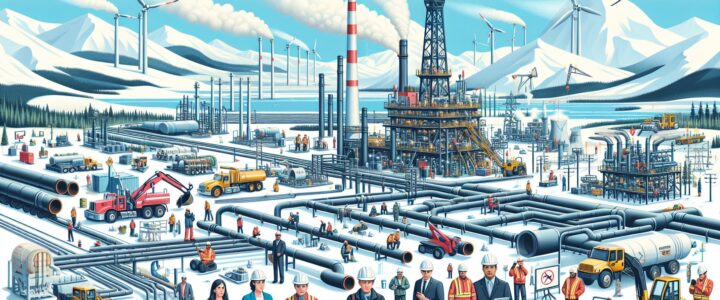The oil and gas industry in Canada is a complex and multifaceted entity. On one hand, it is a crucial part of the country’s economy, providing jobs and generating revenue. On the other hand, it is a source of controversy and conflict, particularly when it comes to environmental issues. The relationship between Canada’s oil and gas industry and environmental sustainability is enigmatic, to say the least.
Many environmental groups and activists argue that the oil and gas industry is a major contributor to climate change and environmental degradation. They point to the industry’s reliance on fossil fuels, its greenhouse gas emissions, and its impact on ecosystems and wildlife. They argue that continued development of the industry will only exacerbate these problems, leading to irreversible damage to the environment.
On the other hand, the oil and gas industry in Canada is quick to defend itself, citing the economic benefits it brings to the country. The industry argues that it provides jobs, stimulates economic growth, and contributes to the country’s energy security. It also points to the efforts it has made to reduce its environmental impact, such as investing in cleaner technologies and practices.
The truth is that the relationship between Canada’s oil and gas industry and environmental sustainability is fraught with contradictions. In many ways, the industry is both a problem and a solution when it comes to environmental issues. It is a major source of greenhouse gas emissions, yet it also provides the energy that drives our economy. It has a significant impact on ecosystems and wildlife, yet it also supports communities and livelihoods.
As Canada grapples with the challenges of climate change and environmental degradation, the future of the oil and gas industry remains uncertain. Will the industry be able to adapt and evolve in a way that is sustainable and responsible? Or will it continue down a path of unchecked development and exploitation?
Only time will tell. But one thing is clear: the enigmatic relationship between Canada’s oil and gas industry and environmental sustainability is a puzzle that will continue to confound us for years to come.




